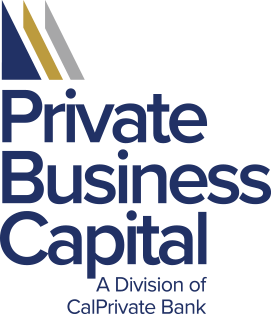SBA 504 Loans
- What are the main advantages of a 504 Loan?
As low as 10% down payment requirement
Long repayment terms (25 years)
Fixed rate for the terms of the SBA loan
As low as 10% down payment requirement
Additional collateral is typically not required - How is a 504 loan structured?
SBA 504 loans finance 40 percent of the total purchase. The bank provides 50 percent of the project the business contributes the 10 percent down payment. As an example, if the purchase price is $1,000,000, the following would be the loan structure:
Bank 1st mortgage – $500,000
SBA 2nd trust deed – $400,000
Business down payment – $100,000 - What are the prepayment penalties?
On the SBA loan there is a declining prepayment penalty for the first 10 years of the loan, typically tied to the initial interest rate. The bank loan usually has a prepayment penalty depending on the structure of the loan.
- What other costs can be included in a 504 loan?
Yes, “soft costs” (e.g. appraisals, environmental, construction interest, closing costs) also can be financed in the 504 loan, allowing the small business to preserve working capital.
- Are there any size requirements for the small business borrower?
The SBA defines the small business as having tangible net worth which must be less than $15 million. After-tax net profit must be $5 million or less, on average, for the prior two years.
- Does the business have to occupy the entire building?
The business must occupy 51% of an existing building within 12 months or 60% if constructing a new facility.
- Can you finance equipment with a 504 loan?
Long-term machinery and equipment with a useful life greater than 10 years (e.g., a printing press).
SBA 7(a) Loans
- What are the main advantages of a SBA 7(a) Loan?
Lower down payment requirements, as low as 15%
Longer repayment terms (25 years)
Shorter pre-payment penalties
More aggressive underwriting, projected income is considered now just historical cash flows
As a preferred lender, PB Capital makes the final decision on approval - How is a 7(a) loan structured?
A 7(a) purchase of office, retail or industrial buildings would require a minimum 15% down payment, the balance financed by a SBA 7(a) loan is for example if the building purchase price is $1,000,000 the following would be the loan structure:
Bank 1st mortgage – $850,000
Borrower down payment – $150,000 - Are there prepayment penalties?
There is a declining 3 year prepayment penalty.
5% year one
3% year two
1% year three
No prepayment penalties to follow for the life of the loan. - Can other costs be included in a 7(a) loan?
Absolutely, in addition to soft costs (e.g. appraisals, environmental, interim interest, and other closing costs) we can include working capital, equipment financing and other eligible use of proceeds.
- Are there any size requirements for the small business borrower?
The business tangible net worth must be less than $15 million. After-tax net profit must be $5 million or less, on average, for the prior two years.
- Does the business have to occupy the entire building?
The business must occupy 51% of an existing building purchase or 60% if constructing a new facility.
Creative Solutions & Quick Closing ProcessGet Started Today with one our specialists

Private Business Capital is a Division of CalPrivate Bank
Founded in 2006, CalPrivate Bank is committed to offering customized financial solutions. Offering a wide array of modern financial services, which include checking, savings, time deposit accounts, treasury management and related tools. CalPrivate Bank is driven by Relationships, Solutions and Trust.


